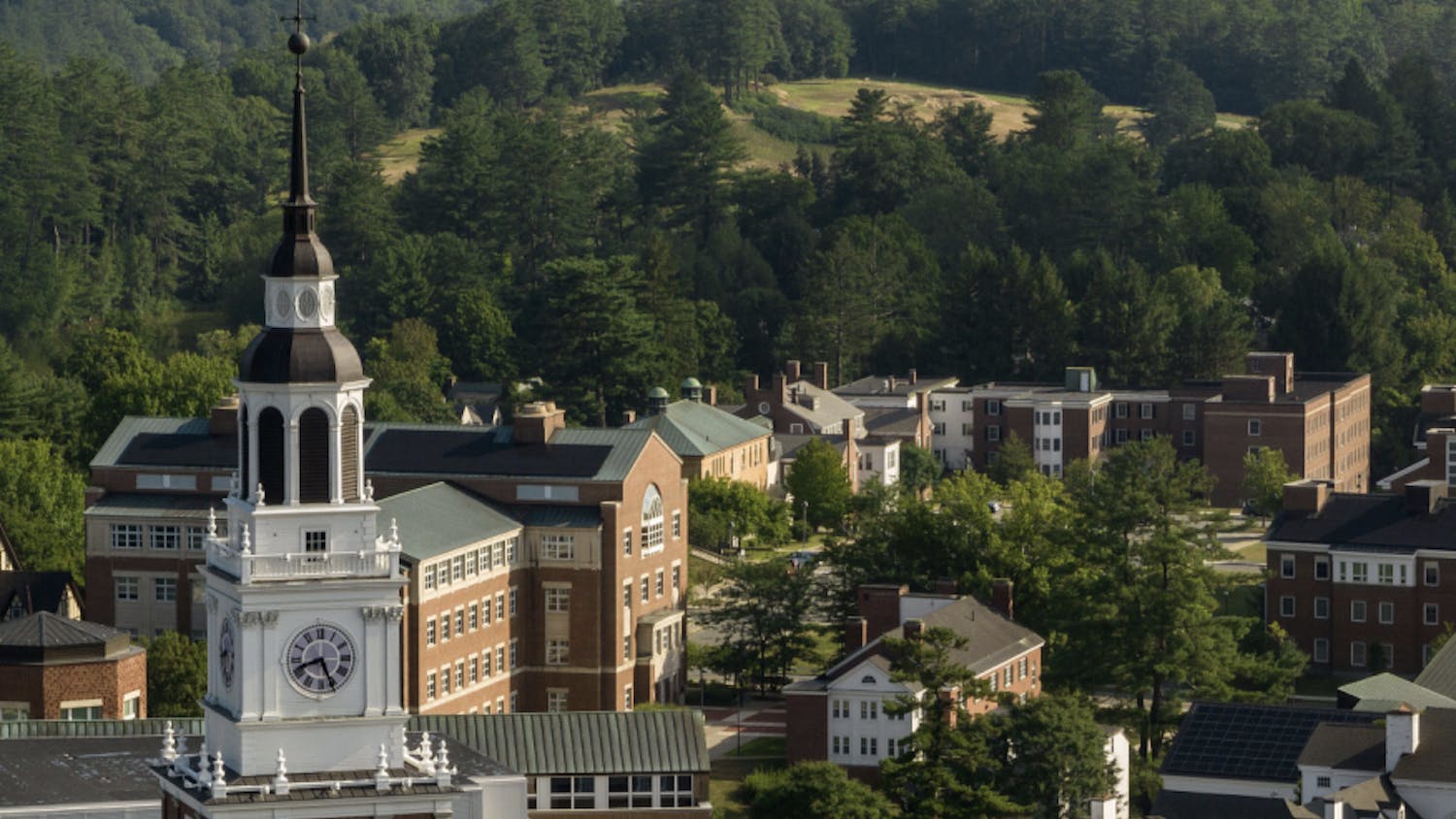[slideshow_deploy id='121560']This past weekend, Dartmouth hosted its 44th annual Dartmouth Powwow — a social gathering and celebration held by Native American communities. Thousands attended the event, powwow committee co-chair and Cherokee Nation citizen Andrew Shipman ’18 said, which featured activities like dancing, drumming and singing.
An 18-person powwow committee — consisting only of freshmen and sophomores — oversaw all aspects of the event, including fundraising, advertising and inviting drum groups and vendors.
Co-chair Marina Van Pelt ’18 of Cochiti Pueblo said that the event’s goal is to let non-Native American undergraduates, as well as those from outside Hanover, partake in a uniquely Native American experience.
“There isn’t that much education with Native Americans so people don’t really know much about us,” she said.
The powwow — which runs over two days — was preceded on Saturday morning by a blessing of the Green. At noon, the host drum, Mystic River and the master of ceremonies, Glenn Drapeau of the Yankton Sioux tribe officially welcomed attendees during the Grand Entry. The rest of the day consisted of several dance competitions including Fancy, Jingle Grass, Traditional and Golden Age. The day ended with a dance honoring the senior attendees.
“I think the best part of the day was seeing everyone stopping by in their tracks to stay a while and watch the dances and finding their own way to participate in the powwows,” Van Pelt said. “It’s just seeing everyone’s faces and expressions when they walk up to us and tell us that they enjoyed everything.”
Because of rain, the powwow moved to Leede Arena for Sunday’s programming. The day consisted of more dance competitions and a session honoring mothers and veterans. Other special events included the Switch Dance, where men and women switch roles, and the Potato Dance, where a couple attempts various dance moves while balancing a potato between their foreheads.
“Some people don’t even know what powwow is, and that’s fine,” Shipman said. “But it really helps educate people on Native American culture as well as allow us to express ourselves and our culture.”
In addition to dances and ceremonies, the powwow hosted vendors who sold various Native American clothes, accessories and other goods.
Cindy and Bob Shelley, who were both adopted by Native American tribes, ran a booth where they sold Navajo and Zuni jewelry, Cherokee soaps, buffalo jerky and fry bread mix. Although this was the first time they attended Dartmouth’s powwow, they said they “never will miss it again.”
Drapeau was led to the powwow by his niece, Augusta Terkildsen ’19, who is a member of Native Americans at Dartmouth. Drapeau said that he was impressed by the event and by College President Phil Hanlon’s support, and he emphasized the importance of recognizing the Native American community.
“These are indigenous homelands to lots of different nations,” he said. “The significance to see that glimpse for non-native relatives is very important — to let them know that we’re still here. Five hundred years of occupation of our homeland — but we’re still here.”
Shipman said that one of the hardest parts about organizing the event was getting people from across the country to come. Although the committee primarily tried to host people from the Northeast, they ultimately chose to bring people in from the Midwest and the West Coast as well.
Despite the difficulty of finding drum groups and performers to invite, Van Pelt said that most invitees were receptive toward attending because of the powwow’s history and size.
Nika Marion, a senior at Siena College in Loubdonville, New York, has been coming to the Dartmouth powwow since 2009 with her family. She participated in the Jingle dance competition and intertribal and social dances.
“There is a really strong sense of [Native American] community at Dartmouth,” she said. “Lot of it is tradition — I’ve been dan cing Jingle since I was 12. The powwow is also very personal and spiritual for me.”
Shipman estimated the Powwow’s total cost at $30,000, which was entirely covered by sponsors including the Office of the President, Special Programs and Events Committee, Native American Alumni Association of Dartmouth, Native Americans at Dartmouth and the Dartmouth Native American Program. He added that not only is the Dartmouth Powwow one of the largest powwows in the region, but it is also one of the largest among colleges in general.



